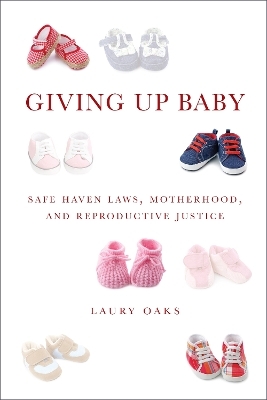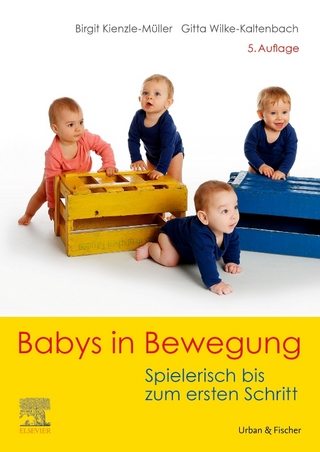
Giving Up Baby
Safe Haven Laws, Motherhood, and Reproductive Justice
Seiten
2015
New York University Press (Verlag)
978-1-4798-0636-2 (ISBN)
New York University Press (Verlag)
978-1-4798-0636-2 (ISBN)
“Baby safe haven” laws, which allow a parent to relinquish a newborn baby legally and anonymously at a specified institutional location—such as a hospital or fire station—were established in every state between 1999 and 2009. Promoted during a time of heated public debate over policies on abortion, sex education, teen pregnancy, adoption, welfare, immigrant reproduction, and child abuse, safe haven laws were passed by the majority of states with little contest. These laws were thought to offer a solution to the consequences of unwanted pregnancies: mothers would no longer be burdened with children they could not care for, and newborn babies would no longer be abandoned in dumpsters.
Yet while these laws are well meaning, they ignore the real problem: some women lack key social and economic supports that mothers need to raise children. Safe haven laws do little to help disadvantaged women. Instead,
advocates of safe haven laws target teenagers, women of color, and poor women with safe haven information and see relinquishing custody of their newborns as an act of maternal love. Disadvantaged women are preemptively judged as “bad” mothers whose babies would be better off without them.
Laury Oaks argues that the labeling of certain kinds of women as potential “bad” mothers who should consider anonymously giving up their newborns for adoption into a “loving” home should best be understood as an issue of reproductive justice. Safe haven discourses promote narrow images of who deserves to be a mother and reflect restrictive views on how we should treat women experiencing unwanted pregnancy.
Yet while these laws are well meaning, they ignore the real problem: some women lack key social and economic supports that mothers need to raise children. Safe haven laws do little to help disadvantaged women. Instead,
advocates of safe haven laws target teenagers, women of color, and poor women with safe haven information and see relinquishing custody of their newborns as an act of maternal love. Disadvantaged women are preemptively judged as “bad” mothers whose babies would be better off without them.
Laury Oaks argues that the labeling of certain kinds of women as potential “bad” mothers who should consider anonymously giving up their newborns for adoption into a “loving” home should best be understood as an issue of reproductive justice. Safe haven discourses promote narrow images of who deserves to be a mother and reflect restrictive views on how we should treat women experiencing unwanted pregnancy.
Laury Oaks is Associate Professor and Chair of the Department of Feminist Studies and an affiliated faculty member in the Department of Sociology and the Department of Anthropology at the University of California, Santa Barbara.
Contents Acknowledgments vii Introduction: Safe Haven Laws Are Not Only about 1 Saving Babies 1. The Work of Saving Babies' Lives and Souls 47 2. Girls at Risk of Dumping Their Newborns 75 3. Relinquishing Motherhood: How and Why Safe Haven 117 Surrenders Happen 4. The Unsurpassed Adoption Value of Safe Haven Babies 165 Conclusion: Safe Haven Laws and Advancing 203 Reproductive Justice Notes 223 References 233 Index 265 About the Author 275
| Erscheint lt. Verlag | 5.6.2015 |
|---|---|
| Verlagsort | New York |
| Sprache | englisch |
| Maße | 152 x 229 mm |
| Gewicht | 386 g |
| Themenwelt | Sachbuch/Ratgeber ► Gesundheit / Leben / Psychologie ► Familie / Erziehung |
| Sachbuch/Ratgeber ► Gesundheit / Leben / Psychologie ► Lebenshilfe / Lebensführung | |
| Geisteswissenschaften ► Psychologie ► Entwicklungspsychologie | |
| Recht / Steuern ► EU / Internationales Recht | |
| Recht / Steuern ► Privatrecht / Bürgerliches Recht ► Berufs-/Gebührenrecht | |
| Recht / Steuern ► Privatrecht / Bürgerliches Recht ► Familienrecht | |
| ISBN-10 | 1-4798-0636-6 / 1479806366 |
| ISBN-13 | 978-1-4798-0636-2 / 9781479806362 |
| Zustand | Neuware |
| Informationen gemäß Produktsicherheitsverordnung (GPSR) | |
| Haben Sie eine Frage zum Produkt? |
Mehr entdecken
aus dem Bereich
aus dem Bereich
spielerisch bis zum ersten Schritt
Buch | Softcover (2024)
Urban & Fischer in Elsevier (Verlag)
CHF 46,15
Born to be wild: Wie die Evolution unsere Kinder prägt. Mit einem …
Buch | Hardcover (2022)
Kösel (Verlag)
CHF 33,90
das Standardwerk für die ersten 12 Monate
Buch | Hardcover (2023)
Gräfe und Unzer (Verlag)
CHF 51,90


